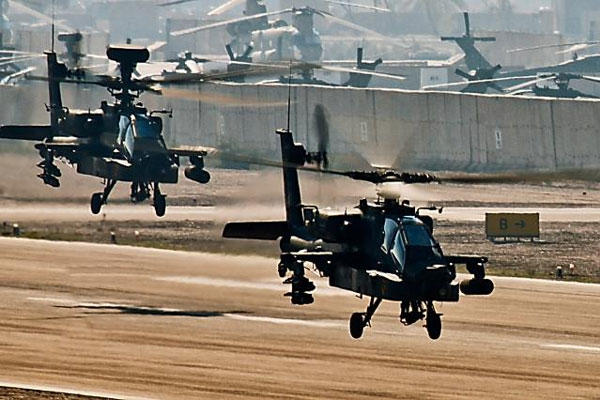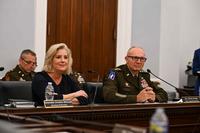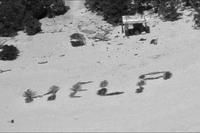The U.S. will go ahead with a major weapons sale to Iraq that will include Apache attack helicopters to assist the forces of embattled Prime Minister Nouri al-Maliki combating an increasingly violent Al Qaeda insurgency, U.S. officials said Wednesday.
"We support those requests," a senior State Department official said of the arms package following a two-hour meeting with Maliki's entourage at Vice President Joe Biden's Naval Observatory residence.
Maliki is scheduled to meet with Defense Secretary Chuck Hagel at the Pentagon on Thursday and with President Obama at the White House on Friday.
The State Department official, who spoke on grounds of anonymity, brushed past the irony of Maliki seeking U.S. help after forcing the withdrawal of U.S. troops in December 2011 and the prime minister's close ties to Iran.
"That's a discussion for another day," the official said. "We're trying to help them now as best we can" in overcoming the sectarian divisions of the Sunni, Shia, and Kurd communities, and especially in combating Al Qaeda, the official said.
Maliki wrote an op-ed in Tuesday's New York Times with the headline "Have Patience with Us." While acknowledging some initial differences with the U.S., Maliki stressed that Iraq is now "on the road to security, democracy and prosperity. While we still have a long way to go, we want to walk that road together with the United States."
"Despite the terrorist threats we face, we are not asking for American boots on the ground," Maliki said. "Rather, we urgently want to equip our own forces with the weapons they need to fight terrorism, including helicopters and other military aircraft so that we can secure our borders and protect our people."
While not opposing the arms sale, a bipartisan group of senators, including the heads of the Armed Services and Foreign Relations Committees, urged Obama in a letter to be cautious with Maliki, who is seeking election to a third term in April.
"Prime Minister Maliki's mismanagement of Iraqi politics is contributing to the recent surge of violence," said the letter from Sens. Carl Levin, D-Mich., John McCain, R-Ariz., Robert Menendez, D-N.J., Bob Corker, R-Tenn., James M. Inhofe, R-Okla., and Lindsey Graham, R-S.C.
However, the letter noted that while "the war in Iraq is over, Americans need to understand that the United States has an enduring national security interest in the development of a sovereign, stable, and democratic Iraq."
In addition to the arms sale, the U.S. was ready to work with the Iraqis on intelligence to target cells of Al Qaeda-in-Iraq -- now called the Islamic State of Iraq and the Levant -- the State Department official said. In the last month alone, Iraq has been hit by 38 suicide bombings, most of them attributed to the Islamic State, the official said.
The Iraqi security forces, trained at a cost of $25 billion by the U.S., have been struggling against the Sunni insurgents of the Islamic State who have driven the civilian death toll so far this year to more than 7,000, according to the United Nations.
"The urgent thing is to supply Iraq as quickly as possible with weapons of an offensive nature to combat terrorism and chase the armed groups," Maliki said at a Baghdad news conference before leaving for Washington.
The arms sale would work through the Defense Department's Office of Security Cooperation-Iraq, which coordinated a previous deal in 2011 for the sale to Iraq of F-16 fighter jets. The planes have yet to be delivered.
A September report by the Defense Department's Inspector General said that differences between the State Department and DoD personnel in Baghdad "inhibited accomplishing efforts important to developing the Iraqi government's security sector and furthering bilateral security relations with Iraq."
"Disagreement between DoS and DoD officials detracted from overall unity of effort and resulted in mixed signals, confused mission objectives, and unclear lines of authority, particularly in Baghdad between the U.S. Mission and the OSC-I," the IG's report said.



























